This Igbo statue was crudely carved from a single piece of wood. The statue comes attached to a custom base for easy display. It measures 32 inches tall including base and weighs 7.5 pounds. There is some damage around the feet along with significant wear and tear including cracking and scuffing – please inspect photos.
Crudely-Carved Igbo Statue 32″ on Base – Nigeria – African Art
$275.00
Sold

| Type of Object | Figure, statue |
|---|---|
| Country of Origin | Nigeria |
| Ethnicity | Igbo |
| Material | Wood, Pigment |
| Approximate Age | Unknown |
| Height (Inches) | 29.75" figure | 32" including base |
| Width (Inches) | 4.5" figure | 5.5" base |
| Depth (Inches) | 4" figure | 5" base |
| Weight (Pounds) | 7.5 lbs |
| Overall Condition | Damage around feet, cracking and wear and tear |
You must be logged in to post a review.
Tribe Information
About the Igbo People
The Igbo have an oral history that tells of their origins having come from a ‘sky being’ whom they call Eri. Eri was sent by Chikwu (God) down to Earth. When Eri first landed, he sat on an ant-hill looking at a marshy landscape. He began to complain about the conditions, so Chikwu sent a blacksmith who used bellows and charcoal to dry the land. Eri and his people lived plentiful until his death, in which all food ceased. One of Eri’s sons, Nri, objected to the lack of food, in which Chikwu’s reply was for him to sacrifice his first son and daughter and bury them in separate graves. 12 days after Nri complied, yams grew from his son’s grave and coco yam from his daughter’s. Later, Nri decided to kill a male and female slave, burying them the same way he did his children. Again, after 12 days, oil palm grew from the male slave’s grave while a fruit tree grew from that of the female slave. Since the creation of this Igbo oral tradition, all kings trace their origin back to the founding ancestor Eri and each king is a ritual reproduction of him.
Read more about the Igbo here.

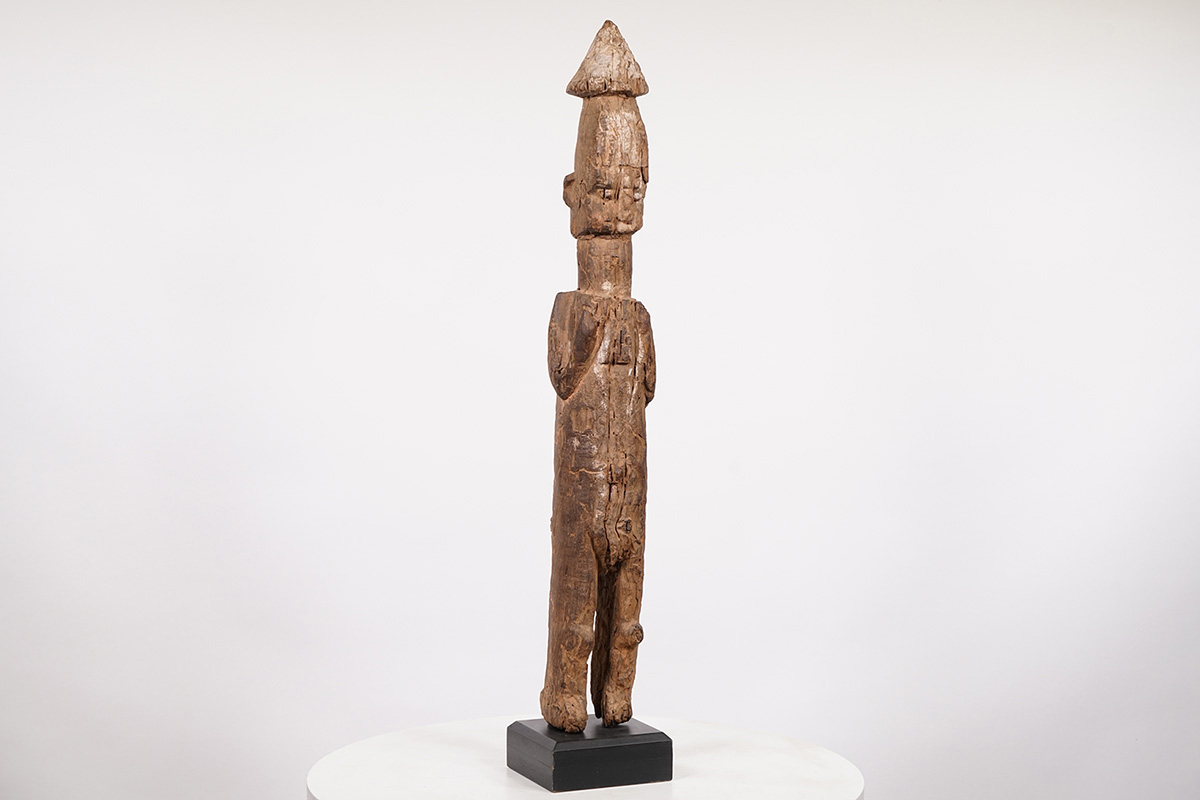

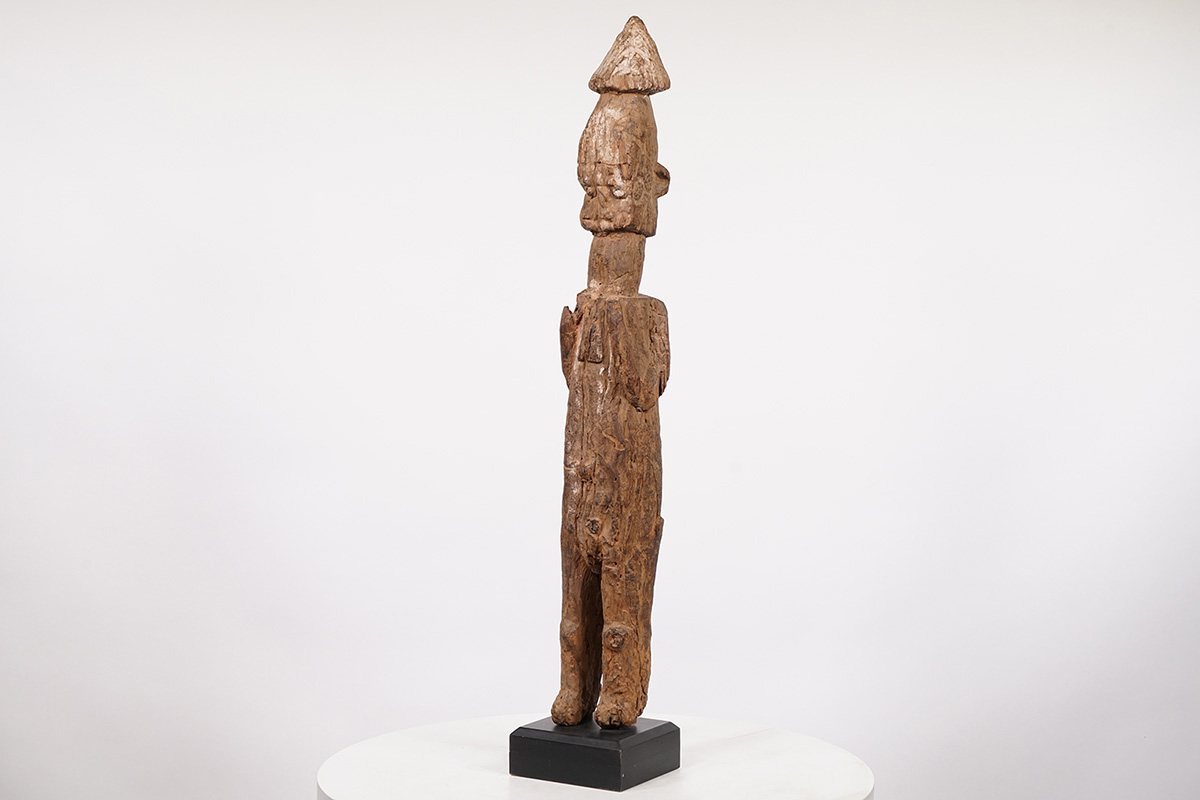
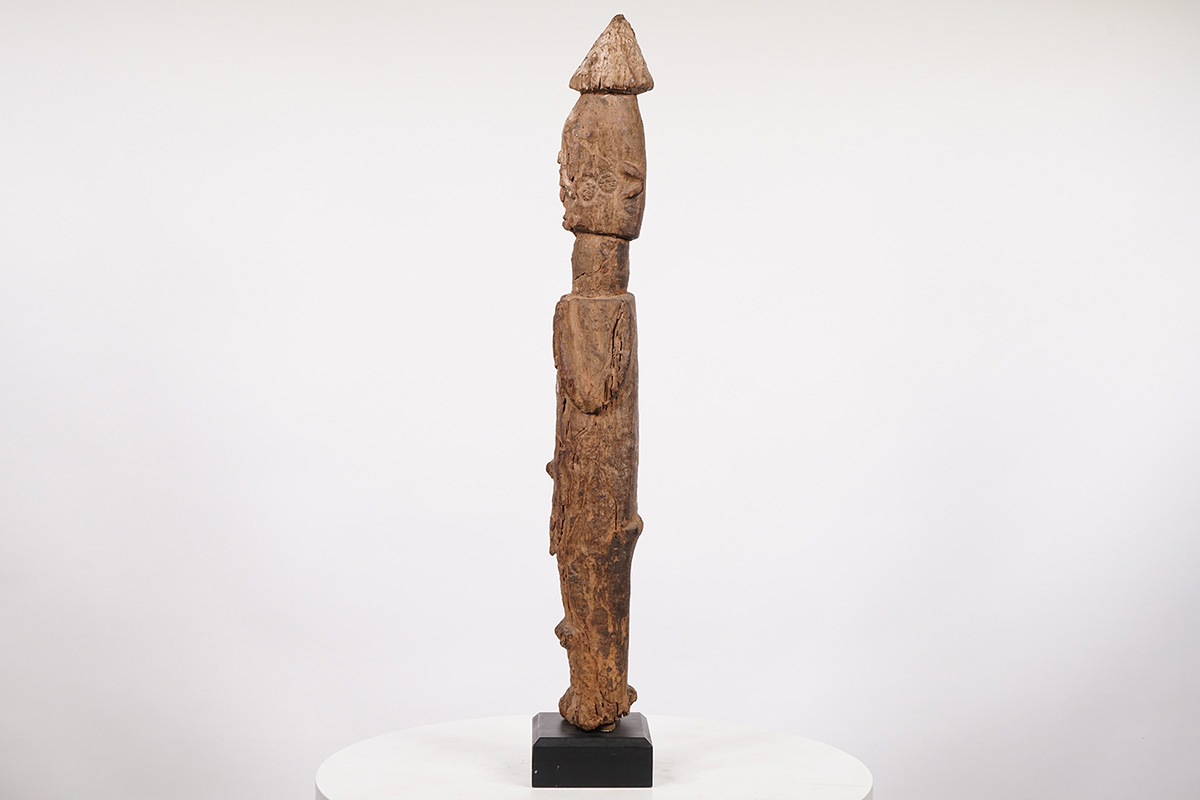
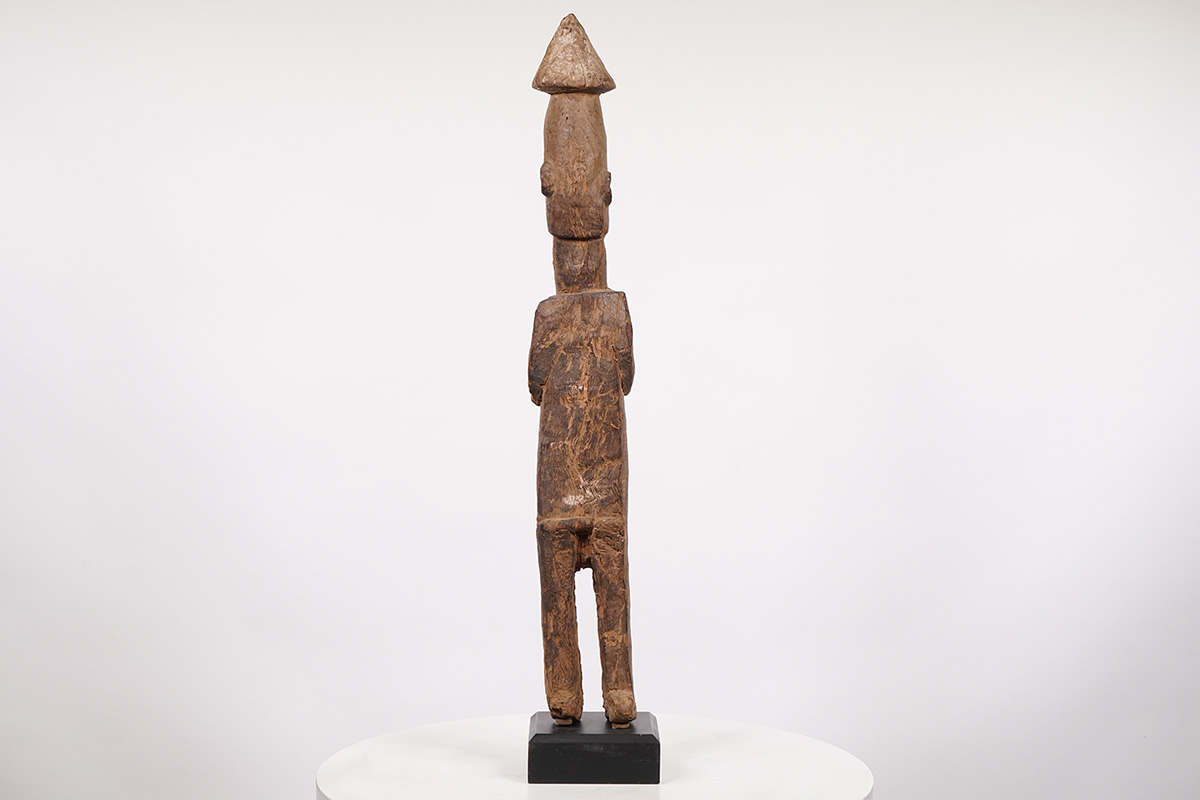
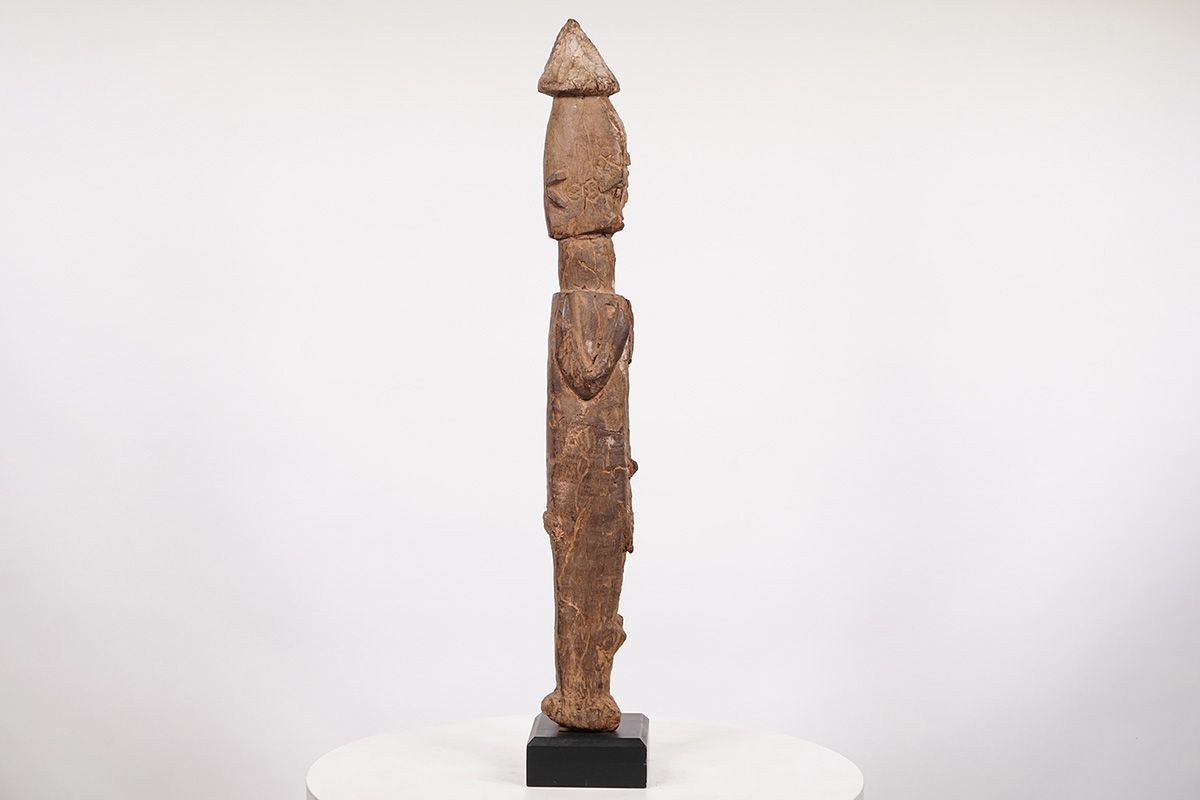
Reviews
There are no reviews yet.